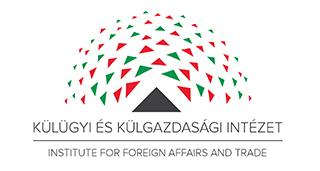About the project:
The countries of Western Balkans face multiple geopolitical, economic, humanitarian and social challenges. Although a slow but steady process of NATO enlargement is present, none of the WB countries is yet close to the EU membership. Global actors use that as an opportunity to increase their influence on Europe. Basic security concerns, handicapped political process, informal dependencies, unclear perspectives and global developments bouse the region in different directions. COVID-19 pandemic only aggravated the level of uncertainty, with vaccination becoming another hot political issue. The EU’s tactics towards the region assume increased leverage, political accountability and credibility, and it will not remain unnoticed by global and regional contestants such as Russia, China, Turkey or Saudi Arabia.
EU’s values-centered conditionality does not necessarily correspond to the political and economic interests of local elites. Hence, there is a need for an exploration of the possible trajectories for the Western Balkans considering the EU’s priorities, other players’ power projection and pandemic-related developments. The mapping of potential trends and potential outcomes for the Western Balkans, as well as including the V4 perspective into the debate, will uplift the discussion on the importance of the region for the West, in particular, EU and NATO. By means of Central European cooperation, we hope to ensure that the best recommendations are developed and heard in the EU and the U.S.
The “Western Balkans – Exploring Trajectories for the Region” project is supported by the International Visegrad Fund and is part of a broader effort called “Western Balkans Futures” aimed at elevating and extending the debate around the future of Western Balkans.
The project entails the publication of the “Scenarios for the Western Balkans 2030″ report based on the scenario-building workshop with experts from Western Balkans and Visegrad countries that took place on 9-10 September 2021.
The project is supported by: International Visegrad Fund.

The project is co-financed by the Governments of Czechia, Hungary, Poland and Slovakia through Visegrad Grants from International Visegrad Fund. The mission of the fund is to advance ideas for sustainable regional cooperation in Central Europe.
Watch: What’s Up in Western Balkans? Ask an Expert.
Articles:
- Political Hostage Crisis in Bosnia and Herzegovina, by Tanja Topić, Friedrich Ebert Foundation (BiH)
- Weakness of Serbian Government Laid Bare, by Jovan Jovanović, former MP of the Republic of Serbia (2016-2020) and Serbian Ambassador to Indonesia and ASEAN (2011-2014) (SRB)
- Time for the EU to Deal Fairly with the Western Balkans, interview with Eduard Kukan by Lucia Najšlová, published in Visegrad Insight No. 1 (2012)
- The Serbian Gambit, by Tetiana Poliak-Grujić, Visegrad Insight (UA/PL)
- The War in Ukraine and the Western Balkans, by Alba Cela, Albanian Institute for International Studies (ALB)
- The Crisis in Bosnia and Herzegovina, by Július Lőrincz, Slovak Foreign Policy Association (SK)
- Security in the Western Balkans, by Ledion Krisafi, Albanian Institute for International Studies (ALB)
- Western Balkans as Another Friction Point (originally published in Czech in Hospodářské noviny), by Albin Sybera, Visegrad Insight Fellow (CZ)
- Simulating Five Scenarios for the Western Balkans (originally published in Macedonian at okno.mk), by Mariglen Demiri, EUROTHINK – Center for European Strategies (MK)
- The ‘Dialogue’ Between Belgrade and Pristina, by Jovan Jovanović, former MP of the Republic of Serbia (2016-2020) and Serbian Ambassador to Indonesia and ASEAN (2011-2014) (SRB)
- Where to Next, Western Balkans? (originally published in Hungarian at azonnali.hu), by Ferenc Németh, Institute for Foreign Affairs and Trade (HU)
- The Western Balkans and the European Union (originally published in Serbian in Novi Magazin), by Svetlana Stefanović, Foundation BFPE for a Responsible Society (SRB)
- The Integration of the Western Balkans Into the EU Is Also Blocked Because of the War in Ukraine (originally published in Czech in Deník N), by Barbora Chrzováand Petr Čermák (CZ)
- How Putin’s War May Affect the Western Balkans (originally published in SK in DennikN), by Grigorij Mesežnikov (SK)
Podcasts:
- Bosnian Political Crisis (part of the “Summit for Democracy” episode), with Miloš Šolaja, University of Banja Luka (BiH), and Marta Szpala, Centre of Eastern Studies (PL)
- Serbian Lithium Saga, with Marko Savković, Foundation BFPE for a Responsible Society (SRB)
- Why Hungary Is Investing In the Western Balkans, with Ferenc Németh, Institute for Foreign Affairs and Trade (HU)
- How To Be Firm Against Revisionists, Zoran Nechev, Institute for Democracy “Societas Civilis” (MK)
- Corruption and Coercion Continues Throughout Eastern Europe, Radomir Kračković, journalist at TV Vijesti (ME)
- Josep Borrell’s Visit to the Western Balkans (part of “Hungary and Serbia To the Polls” episode), with Dimitar Nikolovski, EUROTHINK – Center for European Strategies (NM)
- Elections in Serbia (part of the “Autocrats Sustain Power in Serbian and Hungarian Elections” episode), with Aleksandar Vasović, Reuters (SRB)
- Western Balkans Future and the War in Ukraine (part of the “The Impact of French Elections in CEE” episode), with Tomáš Strážay, SFPA (SK)
- Albania’s perspectives on EU integration (part of the “The Battle for Donbas Has Begun” episode), with Ledion Krisafi, AIIS (ALB)
- Priorities of the Czech Republic EU Presidency towards Western Balkans (part of the “‘War Selfies’ Continue in Kyiv Amidst Security Concerns”), with Petr Čermák, Charles University in Prague (CZ)
Online discussions:
- What Future Holds for Western Balkans, with Péter Balázs, former Foreign Minister of Hungary, Thomas Hagleitner, DG NEAR, European Commission, and Marianna Neupauerová, Deputy Executive Director, International Visegrad Fund – 7 March 2022, 16:00 CET
- WESTERN BALKANS – SCENARIOS FOR THE FUTURE DEVELOPMENT, with Tomáš Strážay, director of SFPA and Tetiana Poliak-Grujić, Visegrad Insight’s Programme Manager for EU Neighbourhood – 9 March 2022, 11:00 CET
- Impacts of the War in Ukraine on the Western Balkans, with Adnan Ćerimagić, Senior Analyst, European Stability Initiative, Luka Šterić, Researcher, Belgrade Centre for Security Policy and Bogdan Zawadewicz, Reserach Fellow, Centre for Eastern Studies (OSW) – March 11, 10:00 CET
- European Perspectives of the Western Balkans in Time of Crisis, with Pavol Demeš, Senior Fellow, GMF US, Jelica Minić, President, European Movement in Serbia, Shpetim Gashi, Vice-President, Council of Inclusive Governance, Tetiana Poliak-Grujić, EU Neighbourhood Programme Manager, Visegrad Visegrad Insight, Res Publica Foundation – 16 March 2022
- Future trends for the Western Balkans: More crises, more opportunities?, with Valery Perry, Senior Associate, Democratization Policy Council, Faris Kočan, Researcher, University of Ljubljana, Christina Griessler, Research Assistant, Andrassy University – 17 March 2022
- The Upcoming Czech EU Presidency and the Western Balkans: What Can We Expect In Light of the War in Ukraine?, with Petr Čermak, Researcher, Charles University, Žiga Faktor, Head of Brussels Office, Europeum, Jozef Zrzavecky, Analyst, Czech Ministry of Foreign Affairs – 17 March 2022
- The Future Of the Western Balkans: Five Scenarios for 2030, with Alba Cela, Executive Director, Albanian Institute for International Studies, Ledion Krisafi, Senior Researcher, Albanian Institute for International Studies, Ferenc Nemeth, Research Fellow, Institute for Foreign Affairs and Trade, and Tetiana Poliak-Grujić, EU Neighbourhood Programme Manager, Visegrad Visegrad Insight, Res Publica Foundation – 18 March 2022
Leader of the project:
Partners:








